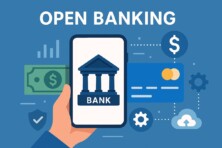First Citizens Bank will become the new owner of the failed Silicon Valley Bank.
Source: Pixabay.com
The US Federal Deposit Insurance Corporation (FDIC) announced the sale of the Silicon Valley Bank on March 27. The regulator estimated that the bankruptcy of this financial institution, which was the mainstay for many startups, would lead to losses of the Insurance Fund of approximately $20 billion.
The deal includes the purchase of Silicon Valley Bank assets worth about $72 billion at a discount of $16.5 billion. About $90 billion in securities and other assets of the failed lender will remain at the disposal of the FDIC.
The news of the sale of the financial institution appeared a few weeks after the bank came under the control of the Insurance Fund due to loss of solvency because of a reduction in deposits.
FDIC reports that 17 branches of the Silicon Valley Bank will continue to work as structural elements of First Citizens Bank.
The collapse of the Silicon Valley bank was a sensitive shock to the banking sector. The biggest problem that happened was for regional financial institutions. The Federal Reserve System has assisted the lender’s depositors, providing them with full protection. Depositors got access to all their money.
Before leaving the financial market as an independent player, Silicon Valley Bank was the 16th largest financial institution in the United States. The fall of the lender was the largest collapse in the American banking system since 2008.
Frank B. Holding Jr., Chairman and CEO of First Citizens Bank, said that this financial institution is proud of its history of organic growth, which is provided through deliberate strategic acquisitions.
Last year, First Citizens Bank acquired CIT, a lender for medium-sized businesses, for $2 billion.
Frank B. Holding Jr. said that the acquisition of Silicon Valley Bank will strengthen the ability of its financial institution to serve firms in the private equity, venture capital, and technology sectors. He also announced his intention to develop and maintain the strong relationships that the banking business of the SVB Global fund inherited. Frank B. Holding Jr. noted that this transaction will accelerate the expansion of First Citizens Bank in California.
The Silicon Valley Bank served mainly tech startups and venture capitalists who invested tens of billions of dollars during the peak funding cycle in 2021. This specificity of activity was the vulnerability of a financial institution.
As we have reported earlier, Warren Buffett May Invest in Regional Banks.









